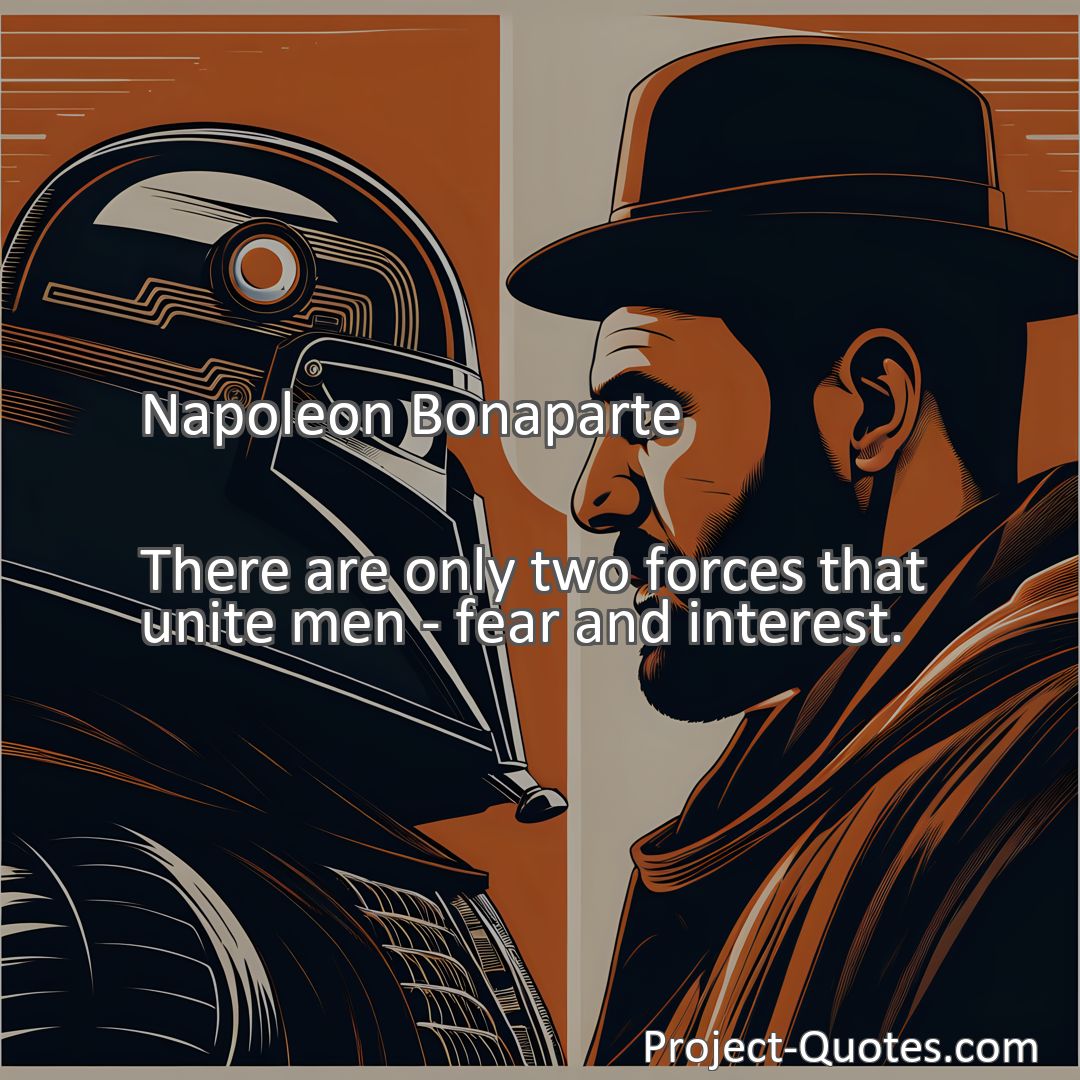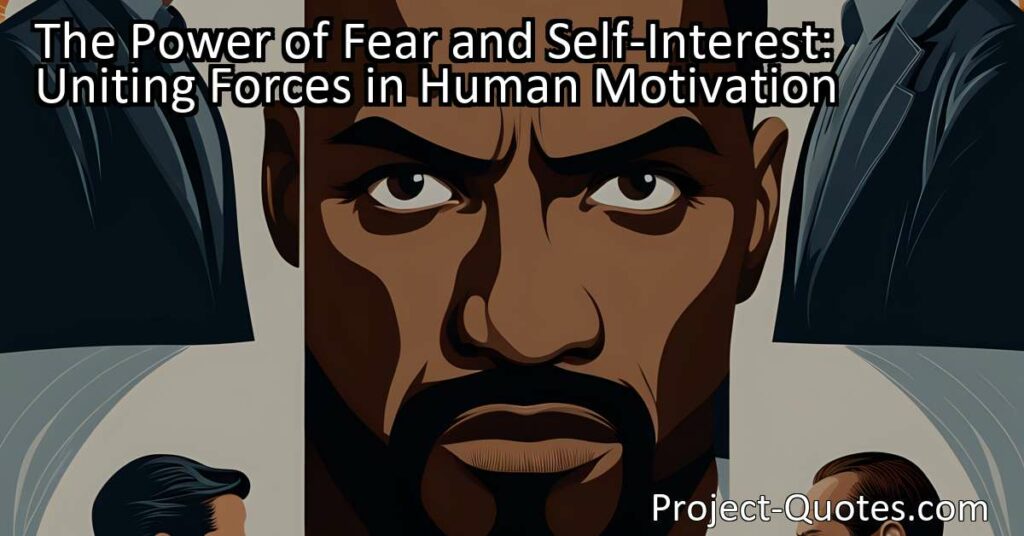There are only two forces that unite men – fear and interest.
Napoleon Bonaparte
Fear, a powerful unifying force, has the ability to foster trust and cohesion among individuals when faced with a shared threat. It can strengthen personal relationships, discourage actions that may damage friendships, and even be used by leaders and governments to manipulate and control populations. However, it is important to recognize and balance the use of fear, as an excessive reliance on it can stifle individual freedoms and lead to social unrest.
Table of Contents
Meaning of Quote – There are only two forces that unite men – fear and interest.
In the words of Italian philosopher Niccolò Machiavelli, “There are only two forces that unite men – fear and interest.” This profound statement by Machiavelli delves deep into the essence of human motivation and the driving factors behind our actions. It suggests that fear and self-interest are the primary forces that bind individuals together, influencing our relationships, communities, and even the larger society. By examining the power of fear and interest as unifying forces, we can gain valuable insights into human behavior and the dynamics of human interaction.
Fear, often considered a negative emotion, can be a powerful motivator and a unifying force. It is an instinctual response triggered when we perceive a threat or danger, releasing adrenaline and activating our fight-or-flight response. Fear can create a sense of urgency and cohesion among individuals, especially when confronted with a shared threat. This primal emotion transcends various aspects of life, from personal relationships to larger societal issues.
In personal relationships, fear can foster trust and loyalty among individuals. For instance, the fear of losing a loved one can strengthen the bond between family members, leading to increased support and protection. Similarly, the fear of emotional or physical pain can discourage actions that may damage a friendship, encouraging individuals to maintain honesty, respect, and empathy towards one another.
On a larger scale, fear is often used by leaders and governments to manipulate and control populations. Throughout history, rulers have capitalized on fear to assert their authority and maintain social order. By instilling fear in individuals, oppressive regimes can ensure compliance with their policies and suppress dissent. However, it is important to note that fear-based unity is often fragile and can easily lead to social unrest and rebellion when the fear becomes overwhelming or perceived as unjust.
While fear can be a potent unifying force, self-interest is equally significant in inspiring collective action. Self-interest stems from the innate desire to fulfill personal needs and aspirations, driving individuals to interact with others and form alliances that advance their own welfare. It is a force that draws people together by appealing to their individual desires, dreams, and ambitions.
In economic spheres, self-interest is evident through trade and cooperation. Individuals and businesses come together for mutual benefit and the exchange of goods and services. This self-interested pursuit of economic prosperity has led to the creation of complex networks and interconnected global markets. Additionally, self-interest also drives innovation as individuals seek personal gain through technological advancements and societal development.
Similarly, in the realm of politics and social activism, self-interest plays a significant role in uniting individuals towards common goals. Advocacy groups, for instance, rally like-minded people by appealing to their shared interests, be it environmental conservation, social justice, or the protection of civil rights. By creating a collective sense of self-interest, these movements can mobilize individuals to effect meaningful change and bring about positive societal transformation.
Although fear and self-interest can be unifying forces, their interplay can often lead to conflicting motivations and outcomes. For instance, self-interest may prompt individuals to compete against one another, potentially fueling fear and mistrust within communities. In the global context, conflicts often emerge as nations safeguard their own interests, leading to tensions and power struggles.
It is crucial to recognize and balance these forces in order to establish harmonious and sustainable relationships. Fear must be tempered with understanding and empathy, as an excessive reliance on fear-based unity can stifle individual freedoms and suppress authentic expression. Similarly, while self-interest is natural and necessary for personal growth, it should be coupled with a sense of collective responsibility and consideration for the well-being of others.
In conclusion, Niccolò Machiavelli’s timeless quote, “There are only two forces that unite men – fear and interest,” sheds light on the fundamental factors that drive human interaction and motivation. Fear can be a powerful unifying force, fostering trust, loyalty, and collective action to address shared threats. Simultaneously, self-interest motivates individuals to form alliances and work towards common goals. However, balancing these forces is crucial to ensure healthy relationships and promote the well-being of both individuals and society as a whole. By understanding and harnessing the power of fear and interest, we can cultivate empathy, cooperation, and positive change for a better future.
I hope this quote inspired image brings you hope and peace. Share it with someone who needs it today!


